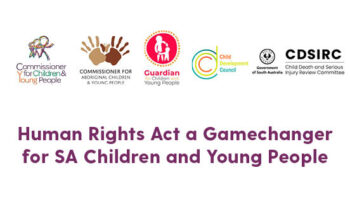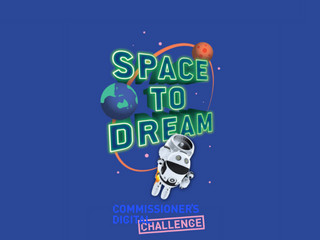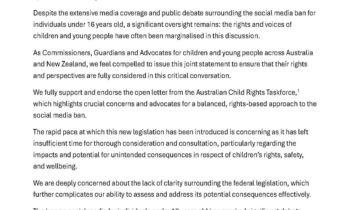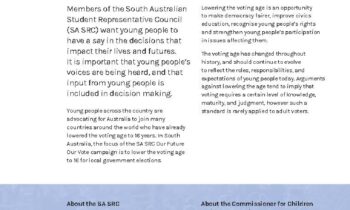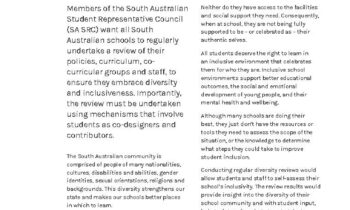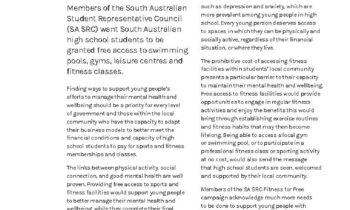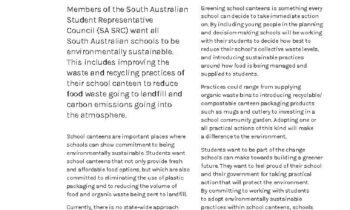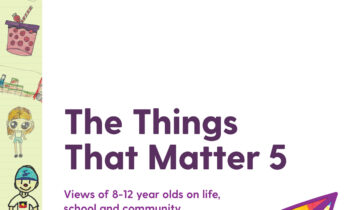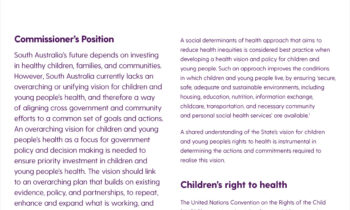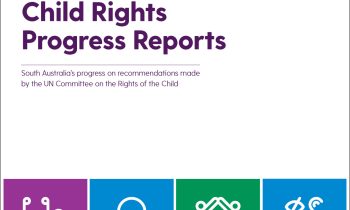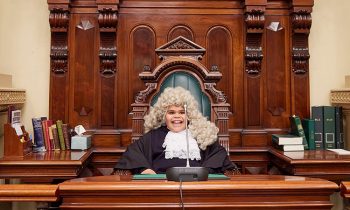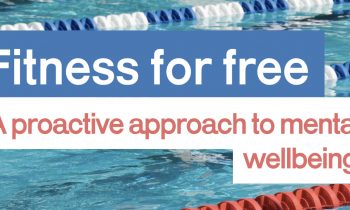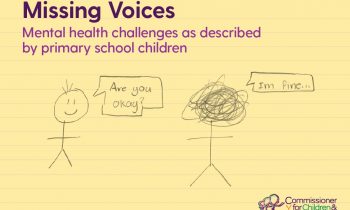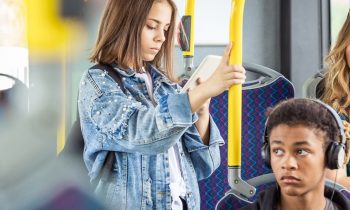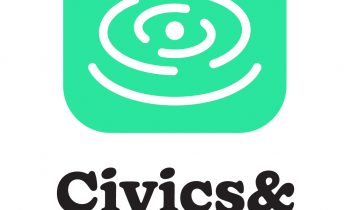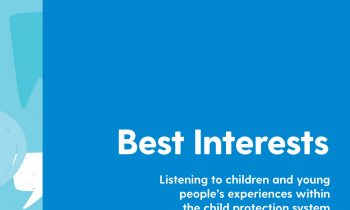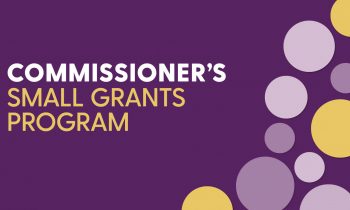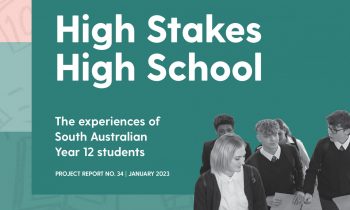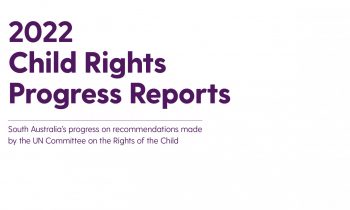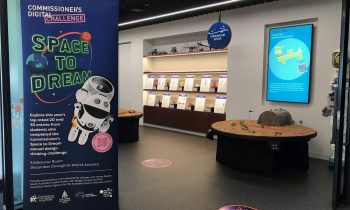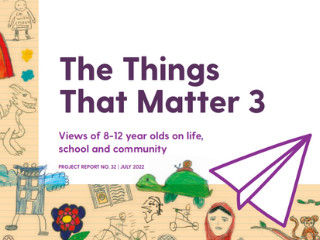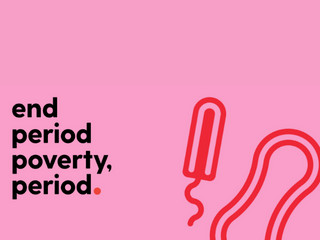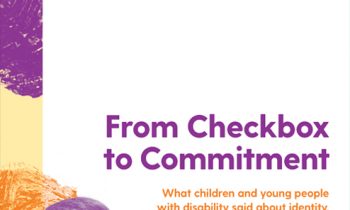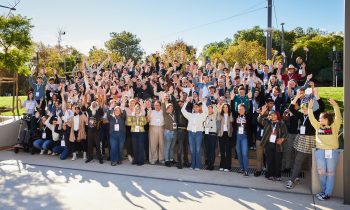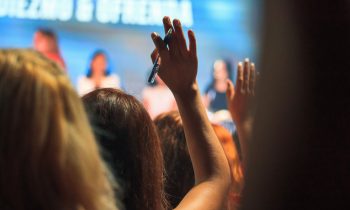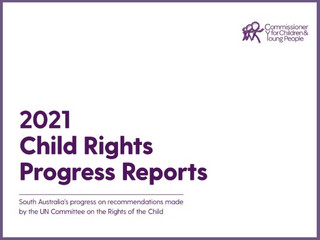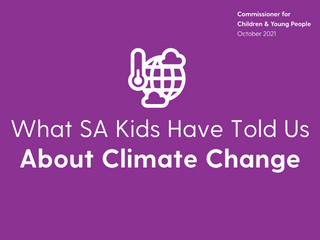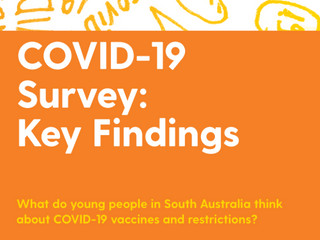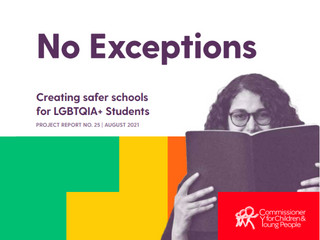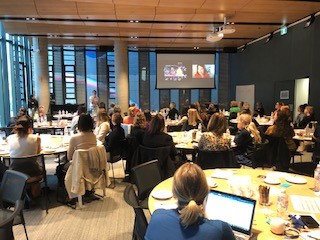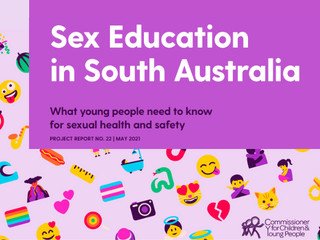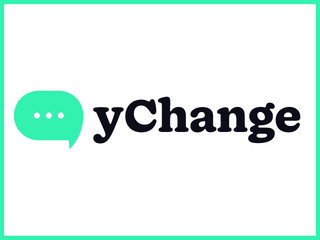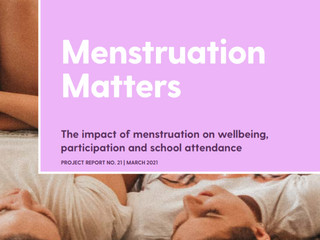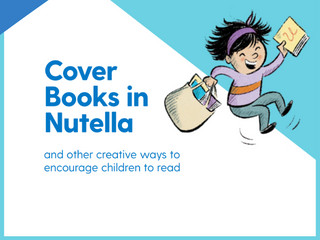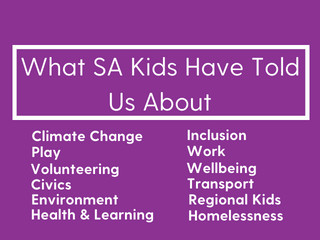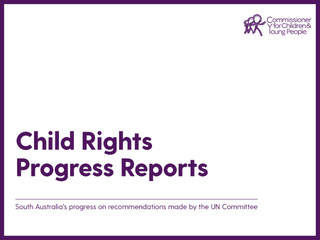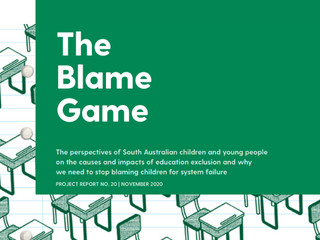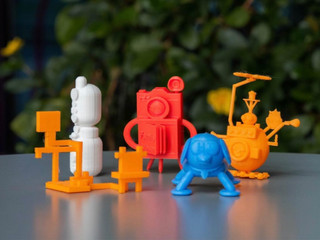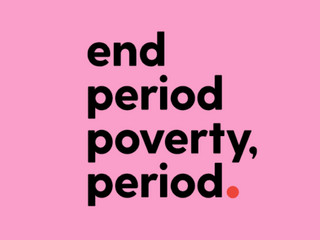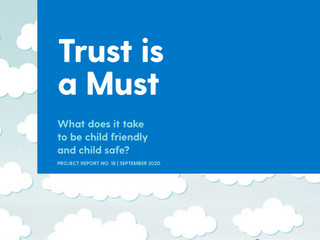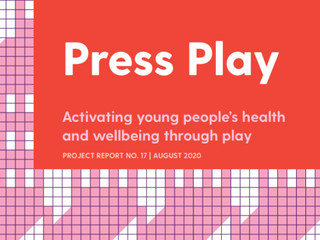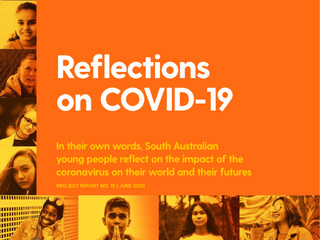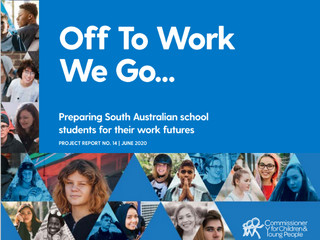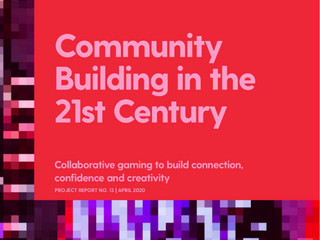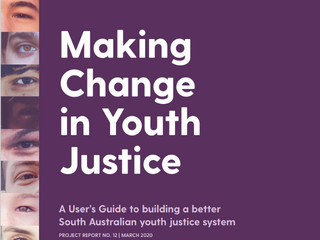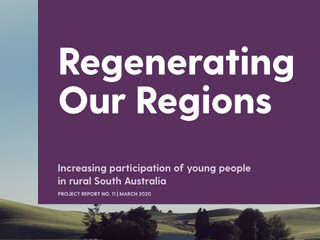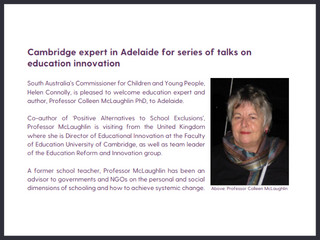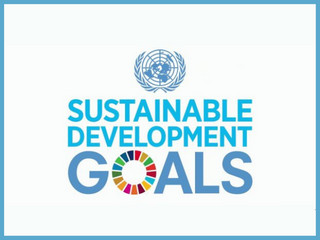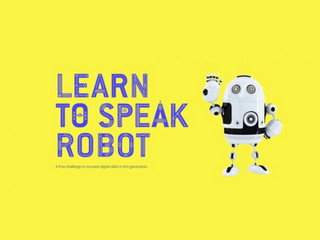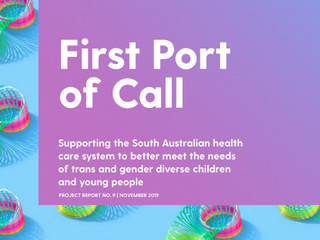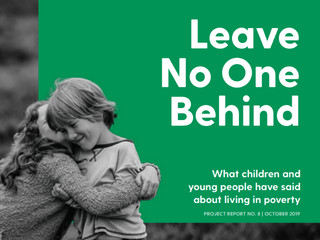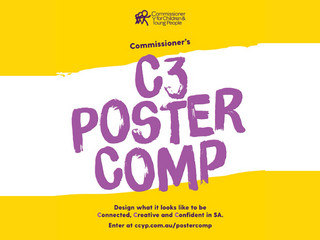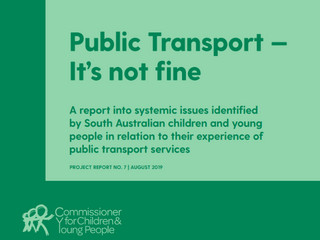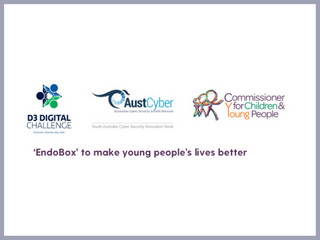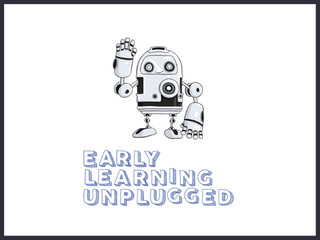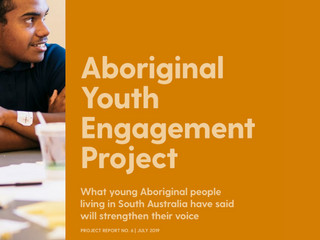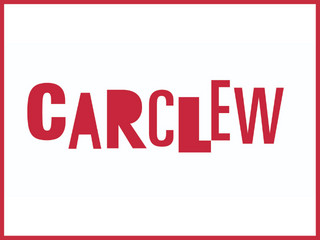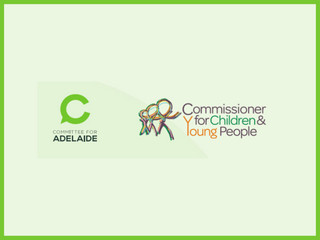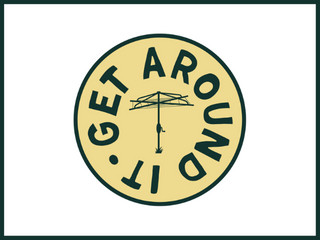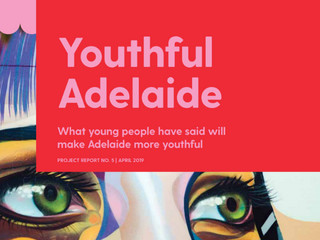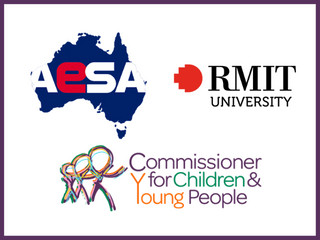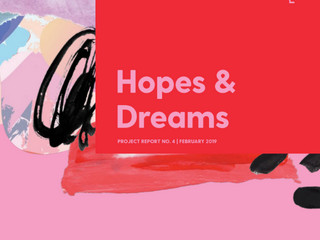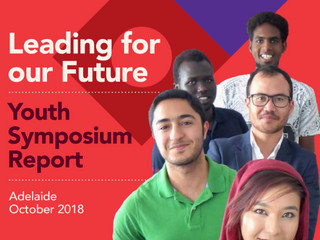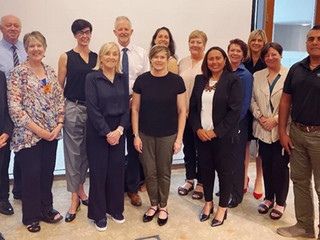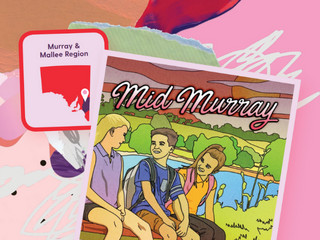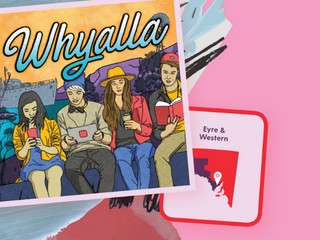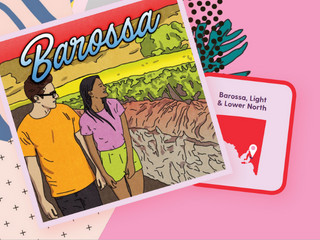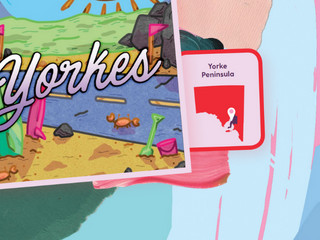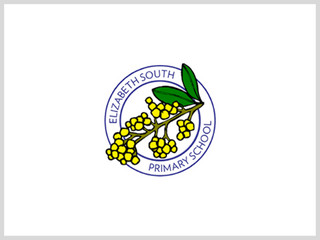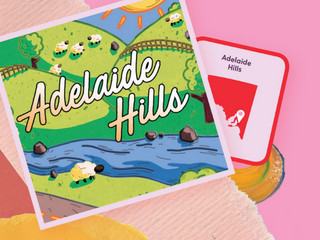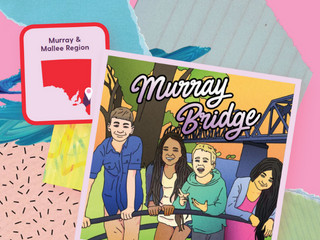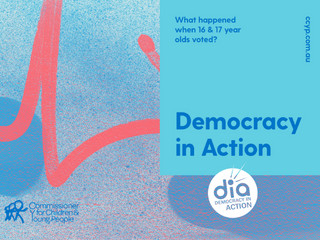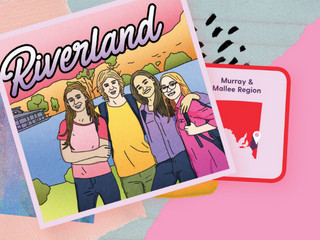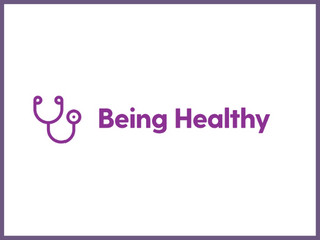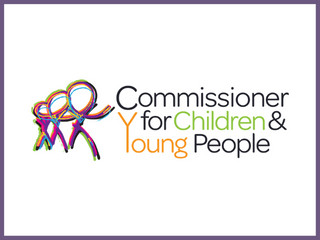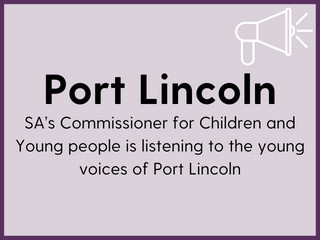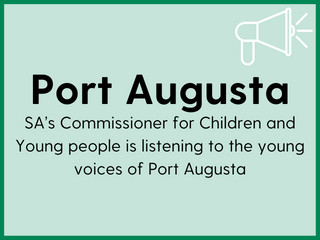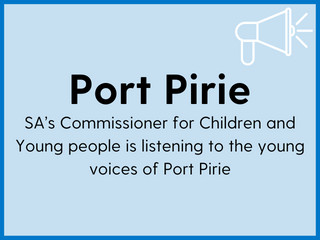Media Releases
MEDIA CONTACT: For all inquiries, email CommissionerCYP@sa.gov.au or phone (08) 8226 3355.
Children’s Perspectives on History and Our Future
This year’s theme, Bridging Now to Next, calls us to connect the truth of where we are with the future we must build together. That bridge is made of action.
read moreNational Reconciliation Week Statement from Acting Children’s Commissioner, Mimi Crowe
This year’s theme, Bridging Now to Next, calls us to connect the truth of where we are with the future we must build together. That bridge is made of action.
read moreHuman Rights Act a Gamechanger for SA Children and Young People
Human Rights Act a Gamechanger for SA Children and Young People South Australia’s leaders of the five statutory oversight and advocacy bodies for children and young people have jointly welcomed the SA Parliament’s Social Development Committee...
read moreCivil society unites behind call for a Human Rights Act for South Australia
Today, on Human Rights Day, an alliance of civil society organisations has come together to call for the enactment of a South Australian Human Rights Act that legally protects the dignity and interests of all South Australians. Significant momentum...
read moreCommissioner’s Space to Dream Exhibition opens today at the Australian Space Discovery Centre
The Commissioner’s annual Space to Dream Exhibition opens today at the Australian Space Discovery Centre at Lot Fourteen, North Terrace. The exhibition features top rated designs chosen from entries received from schools across the State whose...
read moreJoint Statement from ANZCCG re Federal Govt’s social media legislation
Australia’s top officials for children and young people hold grave concerns about the rushed process and lack of clarity surrounding the Federal Government’s social media legislation, which will place significant restrictions on social media use...
read moreMedia Release: Teenagers and Safety
Stark differences between genders in relation to teenagers’ experiences of safety South Australia’s Commissioner for Children and Young People, Helen Connolly, has today released her latest report Teenagers and Safety – an examination of the 908...
read moreMedia Release: YEDP Graduation Showcase
South Australian young people graduate from inaugural Youth in Emergencies Development Program, Building Key Skills for Disaster Preparedness. With emergencies increasing in frequency and severity, South Australian students have taken a significant...
read moreOur Future Our Vote
Make democracy fairer: lower the voting age to 16 for local government elections say SA young people. A poll of more than 769 secondary school students reveals half believe the voting age for local government elections should be lowered from 18 to...
read moreSeeing Ourselves
SA SRC Seeing Ourselves campaign proposes regular diversity reviews to ensure SA schools are inclusive of all students. A poll of more than 750 high school students reveals many students are unaware of youth-led school-based programs to celebrate...
read moreFitness for Free
Government and fitness industry should work together to benefit young people’s mental health. A poll of more than 617 South Australian high school students reveals two-thirds of them believe their mental health would benefit from free access to...
read moreGreening Our Canteens
Students want school canteens to go green with fresh fruit and veg and sustainable food waste practices A poll of more than 1,398 South Australian high school students reveals they want their school canteens to be offering more fresh and...
read moreFree Fares for Our Future
Free public transport for SA high school students would ease cost of living pressures. A poll of more than 912 South Australian high school students reveals free access to public transport would ease cost of living pressures on many families, while...
read moreThe Things That Matter 5 Report
More time with their parents, more time to play, and more trust – just 3 of the things 18,328 ‘Tweens’ told their Commissioner matters to them most The Things That Matter 5 report is out today! It’s the fifth in a series of reports released by...
read moreFunding for 7 period justice projects to mark International Menstrual Health Day
To coincide with International Menstrual Health Day (Tuesday 28 May), South Australia’s Commissioner for Children and Young People, Helen Connolly, is pleased to announce recipients of her 2024 Period Justice grants. Sports clubs, arts...
read morePolicy Position: Commissioner calls on government to provide leadership on children and young people’s health
Currently South Australia lacks an overarching or unifying vision for children and young people’s health, and therefore a way of aligning cross government and community efforts to a common set of goals and actions. Our future depends on investing...
read moreSouth Australia’s Commissioner for Children and Young People, Helen Connolly, will host the 2024 group of 150 new members of the South Australian Student Representative Council (SA SRC) who will meet at the Adelaide Festival Centre today (Friday 22...
read moreCommissioner reports no real improvement on child rights in SA
Commissioner Helen Connolly has today released her fourth annual series of reports on South Australia’s progress toward meeting recommendations made by the United Nations Committee on the Rights of the Child. The evidence suggests that despite...
read moreCommissioner Connolly calls on government to invest in school excursions to support SA families doing it tough
South Australia’s Commissioner for Children and Young People, Helen Connolly, has today released her Anti-Poverty Week Statement calling on the South Australian government to provide financial support to enable all students in SA to participate in...
read moreSouth Australian students call for comprehensive mental health support on World Mental Health Day
This World Mental Health Day, members of the South Australian Student Representative Council (SA SRC) are calling on the South Australian Government to remove barriers for high school students to access pools, gyms, leisure centres and fitness...
read moreIs SA’s mental health care system ‘fit for purpose’ asks Commissioner?
As part of Mental Health Awareness Month, Commissioner Helen Connolly, is calling on the government to position mental health care within a rights-based framework that has relevance and usefulness to the lives of children and young people living in...
read moreSafe and Sound – How children and young people view and use public transport
The South Australian Commissioner for Children and Young People, Helen Connolly, has released her report Safe and Sound - views and experiences of young people on public transport. In 2022, the Commissioner surveyed over 1,000 young South...
read moreStatewide Civics & Citizenship online resource portal launched
The Commissioner for Children and Young People, Helen Connolly has launched a new online platform to serve as a one-stop resource for all things Civics and Citizenship in South Australia. One of the things children and young people have repeatedly...
read moreBest Interests – The experiences of children and young people within the child protection system
South Australia’s Commissioner for Children and Young People, Helen Connolly, has launched her report Best Interests - Listening to children and young people's experiences within the child protection system. The report highlights the importance of...
read moreCommissioner’s Small Grant Program 2023 – NOW OPEN!
South Australia’s Commissioner for Children and Young People, Helen Connolly, has launched her Small Grants Program for 2023 and invites community groups, arts organisations, sporting clubs and local government to apply for small grants of up to...
read moreHigh Stakes High School – what needs to change for SA’s Year 12 students
South Australia’s Commissioner for Children and Young People, Helen Connolly, has launched her latest report: High Stakes High School – The experiences of South Australian Year 12 students. The report is the result of a series of face-to-face...
read moreCommissioner notes ‘little change’ on Child Rights on SA despite increased recognition of what’s needed
Commissioner Helen Connolly has today released her annual series of reports on South Australia’s progress toward meeting recommendations made by the United Nations Committee on the Rights of the Child. The recommendations relate to concerns the Committee has in relation to Australian children and young people.
read moreSpace to Dream Exhibition Opens at Space Discovery Centre
The Commissioner’s 2022 Space to Dream Exhibition opens today (1 December 2022) at the Australian Space Discovery Centre at Lot Fourteen. The exhibition features 20 designs chosen from more than 92 entries received from 32 schools across the State...
read moreOver 13,868 ‘Tweens’ told their Commissioner what matters most
The Things That Matter 3 is the latest report to be released by SA Commissioner for Children and Young People, Helen Connolly. It is the third in the series and examines the findings from the Commissioner’s ‘Tell Helen’ Student Voice Postcard...
read moreCommissioner funds dozens of community projects to help normalise menstruation in SA
Commissioner Helen Connolly has chosen this year’s National Menstrual Hygiene Day to announce the recipients of her 2022 Period Poverty Community Grants program. She is also calling for artists to design a Menstrual Mural...
read moreCommissioner seeks to amplify the voices of children and young people living with disability
South Australia’s Commissioner for Children and Young People, Helen Connolly, has launched her latest report: From Checkbox to Commitment - what children and young people living with disability said about identify, inclusion and independence. The...
read moreMembers of Commissioner’s new SA SRC meet for the first time
South Australia’s Commissioner for Children and Young People, Helen Connolly, is hosting the first face to face meeting of members of the State’s newly established SA student representative council (SA SRC). The inaugural meeting will take place at...
read moreNew state-wide SRC seeking 100 SA school students
South Australia’s Commissioner for Children and Young People, Helen Connolly, has today launched a new model for South Australian school students that will ensure they have a voice in policy and decision making that is led by young people...
read moreCommissioner cautiously optimistic about Children’s Rights
Commissioner Connolly has released her annual series of reports on South Australia’s progress toward meeting recommendations made by the United Nations Committee on the Rights of the Child today. Although progress in some areas still has some way...
read moreCommissioner’s Space to Dream Exhibition opens at Australian Space Discovery Centre
Commissioner Connolly has today announced the opening of the 2021 Space to Dream Exhibition at the Australian Space Discovery Centre at Lot Fourteen. The exhibition features 21 designs chosen from entries received from more than 2,180 South...
read moreYoung South Australians repeatedly call for climate change action
Climate change is consistently in the top 5 issues South Australian children and young people raise with their Commissioner, Helen Connolly. It is an issue they care deeply about and one that is causing them considerable concern and...
read moreCommissioner surveys young people about COVID-19 vaccines and restrictions
South Australia’s Commissioner for Children and Young People, Helen Connolly, has today released a summary report of key findings from a survey of young people aged 12-18 years about their views on COVID-19 vaccines and restrictions. As COVID-19...
read moreEvery LGBTQIA+ student has the right to feel safe at school – no exceptions
Commissioner Connolly has chosen Wear It Purple Day to help highlight the need to create safe, supportive and inclusive environments for all LGBTQIA+ young people attending South Australian religious and...
read moreNational Period Summit an Australian First
Commissioner for Children and Young People is hosting over 100 representatives from organisations around Australia to talk about periods and menstruation at what is Australia’s first National Period Summit. Presented...
read moreMore than babies and bodies, young people want 21st Century sex education
Commissioner Helen Connolly, has today released Sex Education in South Australia – a report on the relevance of the sex education being taught to children and young people across the State. The...
read moreCommissioner launches yChange to re-engage SA young people with their citizenship
Commissioner for Children and Young People, Helen Connolly, and the Parliament of South Australia launched yChange at Parliament House today. yChange is South Australia’s first curriculum aligned, project based, action civics resource for...
read moreAction on menstruation matters much more than we think says Commissioner
Commissioner Connolly has today released Menstruation Matters – an in-depth exploration of the impact menstruation has on South Australian school aged children and young people who have periods. As one of the first reports to explore the...
read more‘Cover Books in Nutella’ and other creative ways to encourage children to read
Commissioner Helen Connolly has today launched her latest report with a title that comes direct from a child’s imagination. Cover Books in Nutella was one of many fun ideas children contributed by children on ways to encourage them to read...
read moreCommissioner’s Systems Thinking Challenge a World First
Commissioner Helen Connolly has today launched Zoom Out - a systems thinking challenge believed to be the first of its kind anywhere in the world. Designed to equip young South Australians with the skills they’ll need to be successful 21st Century...
read moreLet’s stand with SA young people says Commissioner
South Australia’s Commissioner for Children and Young People has chosen International Human Solidarity Day (20 December, 2020) to launch a new set of resources that highlight the views of young people. Commissioner Connolly is calling on SA adults...
read moreCommissioner reports steady progress on SA child rights but no time for complacency
Commissioner Helen Connolly has today released a series of Progress Reports on South Australia’s progress on child rights. Launched to coincide with International Human Rights Day (10 December), the Progress Reports cover six separate child rights...
read moreCommissioner to speak at international conference on menstrual dignity amongst a push for FREE sanitary products in schools
Commissioner for Children and Young People, Helen Connolly, has been calling upon women leaders in South Australia’s Parliament to get in step with their female counterparts at the state, national and international level, and work together to make...
read moreMore than 8,400 SA ‘Tweens’ share what matters to them most
The Blame Game is the latest report released by Commissioner Helen Connolly examining the findings from her School Exclusions project in which 400 South Australian children and young people and their families, shared their views on the impact of...
read moreCommissioner Opens Space to Dream ‘Design Thinking’ Challenge Exhibition at MOD
Commissioner for Children and Young People, Helen Connolly, today announced the opening of an exhibition at MOD. showcasing the top-rated entries for her inaugural Space to Dream ‘Design Thinking’ Challenge in which she challenged South Australian...
read moreCommissioner calls for SA leaders to advocate for FREE sanitary products
What do Queensland, Scotland and New Zealand have in common? Women leaders who have advocated for the introduction of free sanitary products for their citizens. Commissioner for Children and Young People, Helen Connolly is calling upon women...
read moreIt’s time to look through the eyes of the child to see what they say makes an organisation child safe
On the 30th anniversary of National Child Protection Week (6 – 12 September, 2020) Commissioner Helen Connolly has released ‘Trust is a Must’ – what does it take to be child friendly and child safe?’ The Commissioner’s latest report examines...
read morePlay critical to teenage health and wellbeing new report finds
Commissioner Connolly has today released a new report titled ‘Press Play’. The report examines the findings of a survey of 500 South Australian young people aged 13 – 18 on the importance of play in their lives. While much research focuses on the...
read moreYoung People not the face of the pandemic but maybe the eyes and ears
Commissioner for Children and Young People Helen Connolly has today released Reflections on COVID-19 in which in their own words, South Australian young people reflect on the impact of the coronavirus on their world and their futures. More than 300...
read moreYoung people and families ask for new approach to careers education and work experience
Commissioner Connolly has today released a suite of reports examining careers education for South Australian school students. The reports are the culmination of a two-year in-depth examination into what young people need to successfully transition...
read moreEsports and gaming essential to building 21st century communities that young people will want to live in will
Commissioner Connolly has chosen Youth Week to launch her latest report - Community Building in the 21st Century which examines how collaborative gaming can be deployed as a youth engagement strategy to build the kind of communities young people...
read moreCommissioner launches new space for SA’s young people – hub.ccyp.com.au
Young people living in South Australia have a new place to visit. It's called hub and it's been created by the Commissioner for Children and Young People to enable her to continue a critical dialogue with South Australia's young people around the...
read moreThe voice of experience – the young people asking for change in SA’s Youth Justice system
Young people aged 14 – 21 years, all with a lived experience of South Australia’s youth justice system, have recommended eight key changes to significantly improve the system from their point of view. The recommendations form part of Making Change...
read moreStay focused on regional young people while the future is being re-imagined
The Commissioner for Children and Young People, Helen Connolly, says that young people in Regional South Australia are looking for opportunities to participate in building the sustainable future of their local communities. Given the coronavirus and...
read moreChildren’s Laureate meets Children’s Commissioner in a celebration of SA children’s creativity
Australian Children’s Laureate, Ursula Dubosarsky arrives in Adelaide today at the invitation of South Australia’s Commissioner for Children and Young People, Helen Connolly. The author of over 60 books for children and young adults, Ms Dubsarsky...
read moreCommissioner welcomes Professor Colleen McLaughlin to Adelaide
Commissioner for Children and Young People, Helen Connolly is pleased to welcome education expert and author, Professor Colleen McLaughlin PhD. Commissioner Connolly invited Professor McLaughlin to Adelaide, after hearing firsthand from many...
read moreFormer NASA astronaut helps Commissioner launch new Digital Challenge into SA classrooms today!
Commissioner for Children and Young People, Helen Connolly has today launched her new Space to Dream Digital Challenge – the latest in her digital learning journey for South Australia’s children and young people. Space to Dream is all about...
read moreSouth Australia’s young global leaders devise their own action plan for the 2030 SDGs
Young South Australians have a plan for the eradication of poverty by 2030, devised in collaboration with the Commissioner for Children and Young People, Helen Connolly and UN Youth SA. It contains recommendations from young people about what they...
read moreOver 19,000 SA children learnt how to speak robot this year in CCYP’S Digital Challenge
COMMISSIONER CONNOLLY CONGRATULATES ALL SA CHILDREN AND YOUNG PEOPLE WHO PARTICIPATED IN HER INAUGURAL DIGITAL CHALLENGE. PARTICIPATION IN THE 'LEARN TO SPEAK ROBOT' DIGITAL CHALLENGE WAS ROBUST WITH AN ESTIMATED 19,026 SOUTH AUSTRALIAN CHILDREN...
read moreFirst Port of Call Report – November 2019
WE MUST DO BETTER FOR OUR TRANS AND GENDER DIVERSE CHILDREN AND YOUNG PEOPLE COMMISSIONER FOR CHILDREN AND YOUNG PEOPLE HELEN CONNOLLY, HAS TODAY LAUNCHED HER FIRST PORT OF CALL REPORT. THE REPORT FOLLOWS CONSULTATIONS WITH TRANS AND GENDER DIVERSE...
read moreLeave No One Behind – CCYP Poverty Report
A STATE OF POVERTY FOR SA CHILDREN AND YOUNG PEOPLE IS 'NOT ACCEPTABLE' SAYS COMMISSIONER COMMISSIONER FOR CHILDREN AND YOUNG PEOPLE HELEN CONNOLLY HAS TODAY LAUNCHED HER POVERTY REPORT "LEAVE NO ONE BEHIND". THE REPORT IS THE RESULT OF...
read moreCalling all young creatives!
C3 POSTER DESIGN COMPETITION NOW OPEN. COMMISSIONER FOR CHILDREN AND YOUNG PEOPLE HELEN CONNOLLY, HAS TODAY LAUNCHED HER INAUGURAL C3 POSTER COMPETITION WITH $500 IN TOTAL PRIZE MONEY UP FOR GRABS. SOUTH AUSTRALIAN YOUNG PEOPLE AGED 14 TO 22 YEARS...
read morePublic transport service ‘not okay’ say children and young people in SA
SOUTH AUSTRALIAN CHILDREN AND YOUNG PEOPLE WOULD LIKE TO SEE DELIVERY OF PUBLIC TRANSPORT SERVICES TO THEM IMPROVED. THEY HAVE TOLD THE COMMISSIONER THEY SOMETIMES FEEL UNSAFE AND UNWELCOME ON BUSES, TRAMS AND TRAINS AND THAT THEY WORRY ABOUT...
read more‘EndoBox’ to make young people’s lives better
SOUTH AUSTRALIAN DIGITAL ENREPRENEURS DEMING FACTOR WERE AWARDED $15,000 IN GRANT FUNDING AT LAST NIGHT'S D3 DIGITAL CHALLENGE PITCH AND AWARDS NIGHT. ONE OF FIVE TEAMS COMPETING IN THIS YEAR'S DIGITAL CHALLENGE, THEY WILL USE THE FUNDS TO DEVELOP...
read moreNew Unplugged Digital Challenge for Early Learners
COMMISSIONER FOR CHILDREN AND YOUNG PEOPLE HELEN CONNOLLY HAS TODAY LAUNCHED AN EARLY LEARNERS' EXTENSION TO HER DIGITAL CHALLENGE: EARLY LEARNING UNPLUGGED. THE EARLY LEARNER VERSION HAS BEEN SPECIALLY DESIGNED FOR PRESCHOOL AGE CHILDREN (ROUGHLY...
read moreSA’s Aboriginal young people would like more say on their future
COMMISSIONER FOR CHILDREN AND YOUNG PEOPLE, HELEN CONNOLLY SAYS SOUTH AUSTRALIA'S ABORIGINAL YOUNG PEOPLE WANT TO HAVE A GREATER SAY ON MATTERS THAT IMPACT ON THEM. THEY'RE ALSO INTERESTED IN PARTICIPATING IN EVENTS THAT STRENGTHEN THEIR VOICE AND...
read moreSA’s Young people determined to leave no-one behind
Commissioner for Children and Young People SA partnered with UN Youth SA to deliver the Poverty Summit 2019.
read more$10,000 in Carclew arts funding distributed by SA children
Carclew Futures; a team of ten creative thinkers aged 12-15 years who have been supported to distribute $10,000 of arts funding.
read moreLow score for work experience
Surveys of business, schools, community groups and students conducted by the SA Commissioner for Children and Young People and the Committee for Adelaide show the secondary school system has major flaws, failing to deliver for businesses, work...
read moreCommissioner launches getaroundit_sa to showcase young SA thinkers, makers and doers
Profiles of young SA thinkers, makers and doers aged 14 – 22 are pegged to a backyard clothesline to create a new gallery of inspiration and awareness. The new clothesline gallery is the centrepiece of getaroundit_sa, and initiative of the Commissioner for Children and Young People Helen Connolly
read moreYoung people know what will deliver a more youthful Adelaide – if only we’d ask them
THE COMMISSIONER IS ASKING LEADERS, DECISION MAKERS AND PUBLIC POLICY INFLUENCERS TO WORK WITH HER TO ESTABLISH A YOUTHFUL CITY FRAMEWORK THAT CAN DRIVE ENGAGEMENT WITH YOUNG PEOPLE SO THAT THEIR OPINIONS WILL BE FORMALLY CAPTURED AND CONSIDERED...
read moreRising popularity of gaming in schools prompts esports research study
THE COMMISSIONER IS COLLABORATING WITH THE eSports Australia AND RMIT UNIVERSITY ON A RESEARCH STUDY INTO THE IMPACT OF ESPORTS IN OUR SCHOOLS. ESPORTS, AS DISTINCT FROM RECREATIONAL GAMING, REFERS TO GAMING PRACTICIES THAT HAVE THE CHARACTERISTICS...
read moreCommissioner urges leaders to listen to South Australia’s regional young people
THE COMMISSIONER SPOKE WITH MORE THAN 600 OF SOUTH AUSTRALIA'S REGIONAL CHILDREN AND YOUNG PEOPLE TO FIND OUT WHAT MATTERS MOST TO THEM Read the full article here – Media Release – 25 February 2019: Commissioner urges leaders to listen to...
read moreSA’s young migrants and refugee youth leading on ways to shape their futures
The Commissioner for Children and Young People, Helen Connolly and Australian Migrant Resource Centre CEO, Eugenia Tsoulis, release their Leading for our Future Youth Symposium Report today. The report captures the ideas explored at the Youth Symposium held in October last year, where more than 300 South Australian migrant and refugee young people gathered to discuss the challenges they face accessing employment pathways, and importantly, the solutions they have for improving them.
read moreCommissioner challenges children to learn how to speak robot
SOUTH AUSTRALIAN CHILDREN ARE CHALLENGED TO LEARN HOW TO SPEAK ROBOT IN 2019 Read the full article here - Media Release - 05 February - Commissioner challenges children to learn how to speak robot.
read moreChildren’s Commissioners and Guardians (ANZCCG) convene in Adelaide
Australian and New Zealand Children’s Commissioners and Guardians (ANZCCG) will be in Adelaide next week for their bi-annual conference. Read the full article here - Media Release - 09 November - Commissioners and Guardians meeting
read moreHopes and Dreams Regional Tour – Mid Murray
Commissioner Helen Connolly continues her regional tour "Hopes and Dreams" asking young South Australians: "What are your hopes and dreams for the future?" Read the full article: Hopes and Dreams -Media Release - Regional Tour - Mid Murray
read moreHopes and Dreams Regional Tour – Whyalla
Commissioner Helen Connolly continues her regional tour "Hopes and Dreams" asking young South Australians: "What are your hopes and dreams for the future?" Read the full article: Hopes and Dreams -Media Release - Regional Tour - Whyalla 04...
read moreHopes and Dreams Regional Tour – Barossa
Commissioner Helen Connolly continues her regional tour "Hopes and Dreams" asking young South Australians: "What are your hopes and dreams for the future?" Read the full article: Hopes and Dreams Regional Tour - Barossa - Media Release 09 Aug...
read moreHopes and Dreams Regional Tour – Ceduna
Commissioner Helen Connolly continues her regional tour "Hopes and Dreams" asking young South Australians: "What are your hopes and dreams for the future?" Read the full article: Hopes and Dreams Regional Tour - Ceduna - Media Release 20 Jun...
read moreHopes and Dreams Regional Tour – Yorke Peninsula
Commissioner Helen Connolly continues her regional tour "Hopes and Dreams" asking young South Australians: "What are your hopes and dreams for the future?" Read the full article: Hopes and Dreams Regional Tour - Yorke Peninsula - Media...
read moreCapturing a piece of time at Elizabeth South Primary
Students from Elizabeth South Primary School marked a moment in history when they buried a time capsule at their school grounds as part of a project for the SA History Festival; a project sponsored by the Commissioner for Children and Young...
read moreHopes and Dreams Regional Tour – Adelaide Hills
Commissioner Helen Connolly continues her regional tour "Hopes and Dreams" asking young South Australians: "What are your hopes and dreams for the future?" Read the full article: Hopes and Dreams Regional Tour - Adelaide Hills - Media Release...
read moreHopes and Dreams Regional Tour – Murray Bridge
Commissioner Helen Connolly continues her regional tour "Hopes and Dreams" asking young South Australians: "What are your hopes and dreams for the future?" Read the full article: Hopes and Dreams Regional Tour - Murray Bridge - Media Release...
read moreDemocracy in Action Launch
The Commissioner for Children and Young People announces the launch of Democracy in Action a project which highlights young South Australians political participation. Read the full article: Democracy in Action - Launch - 1 Mar 2018
read moreHopes and Dreams Regional Tour – Riverland
Commissioner Helen Connolly kicks off her regional tour "Hopes and Dreams" with a trip across the Riverland. Over 2018, Commissioner Connolly will be asking children and young people across Regional SA: "What are your hopes and dreams for the...
read moreCCYP Being Healthy
Commissioner Helen Connolly asks Mid North children "What does being healthy mean to you?" Read the full article: CCYP Being Healthy - Media Release 09 Nov 2017
read moreWinner announced for the SA’s Commissioner for Children and Young people logo competition
Commissioner for Children and Young People Helen Connolly is excited to announce the winner of her logo design completion Soraya Proude, a young aspiring artist from the town of Port Lincoln has taken out the award. Read the full article: CCYP...
read moreSA’s Commissioner for Children and Young people is listening to the young voices of Port Lincoln
The Commissioner for Children and Young People, Helen Connolly, was appointed recently and is responsible for promoting and advocating for the rights, needs and wellbeing of children and young people across South Australia. Read the full...
read moreSA’s Commissioner for Children and Young people is listening to the young voices of Port Augusta
The Commissioner for Children and Young People, Helen Connolly, was appointed recently and is responsible for promoting and advocating for the rights, needs and wellbeing of children and young people across South Australia. Read the full...
read moreSA’s Commissioner for Children and Young people is giving the young voices of Port Pirie, a chance to be heard.
The Commissioner for Children and Young People, Helen Connolly, was appointed recently and is responsible for promoting and advocating for the rights, needs and wellbeing of children and young people across South Australia. Read the full article:...
read more

